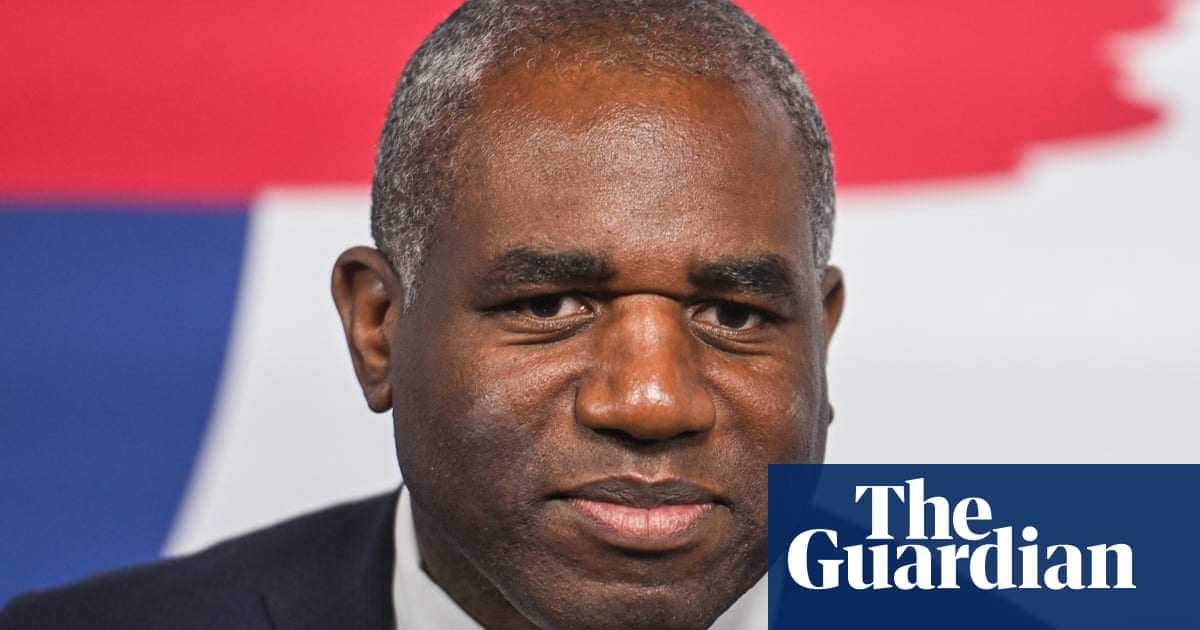David Lammy is asking BBC bosses to draw up tens of millions of pounds’ worth of cuts to theWorld Serviceas part of the spending review, as the fallout continues from Keir Starmer’sdecision to slash the aid budget.
Sources have told the Guardian the Foreign Office has asked theBBCto draw up a budget of up to £70m a year lower than bosses say it needs over the next few years, and well below inflation.
Supporters of the service say the cuts are likely to damage the UK’s international reputation and undermine the fight against global disinformation, given Donald Trump’s attempts to remove funding from the Voice of America (VOA), the US equivalent.
Emily Thornberry, the Labour chair of the foreign affairs select committee, said: “In this age of disinformation, when spreading lies is a new form of warfare, we must fight back.
“TheBBC World Serviceis a unique brand, trusted around the world. It represents our values and defends truth. This is absolutely not the moment to even think of cutting back the service. If anything we should be expanding it.
“Remember when through cuts the BBC is forced to leave a region, Russian and Chinese state media immediately take over the space, the very same frequencies. This is not fluffy soft power – we must take it seriously.”
One person briefed on the details of the talks between the government and the BBC said that ministers’ demands would prove “disastrous” for the service.
A government spokesperson said: “The government highly values the BBC World Service, which reaches a global audience of 320 million, and remains the world’s most trusted international news service.
“In a time where the world faces huge challenges, the government is fully committed to a successful BBC World Service that continues to provide essential, impartial and accurate news coverage and programming.”
The BBC declined to comment.
The Foreign Office is one of several unprotected departments battling for a limited pool of cash as part of the spending review. Rachel Reeves, the chancellor, has pencilled in average cuts to unprotected departments of about 1% a year over the next three years.
The World Service is particularly vulnerable because 80% of its government funding comes from the overseas development assistance (ODA), which the prime minister announced this year he would cut by nearly half in order to increase defence spending.
Sources have said that as part of the spending review process, the Foreign Office has asked the World Service to draw up spending plans under two scenarios – one where its budget stays flat in cash terms and another where it falls by 2% in cash terms.
Either scenario would see the service’s funding fall well below inflation, which is now running at 4.3% globally. The BBC uses global inflation figures as a benchmark for the World Service, given that much of its spending happens outside the UK.
BBC executives believe that to continue investing where they need to – especially after of Trump’s cuts to VOA – they would need government funding of about £200m a year.
Tim Davie, the BBC’s director general, on Thursday went further, arguing the government shouldeventually foot the billfor the service’s entire budget of £400m a year, warning of a “borderline crisis in public service broadcasting”.
“We have to make sure we’re taking on the right things to pump money into the economy,” he told a conference in Bradford. “We need proper funding.”
The scenarios being demanded by the government would see that fall to between £130m and £140m. Those cuts would come on top of £6m, which the service is already trying to save next year, which is being paid for by cuts of about 130 members of staff.
Davie and Jonathan Munro, the director of the World Service, saidin a letter to Thornberrylast month: “We have had no indication that there would be a further uplift in 2026-27, neither have we had an indication that our spending will be held steady.
“We note that ODA [official development assistance] makes up approximately 80% of the government’s World Service spend and there will be considerable pressure on that budget.”
Lammy has previously talked about the importance of the UK’s soft power, and has even set up a “soft power council”, including figures from the arts, sport and education, to help protect it.
Munro said last year: “Every time we take a radio station down or reduce it to save money, the consequences are really significant. State actors from elsewhere in the world go in and put what we would describe as propaganda into those markets.”
